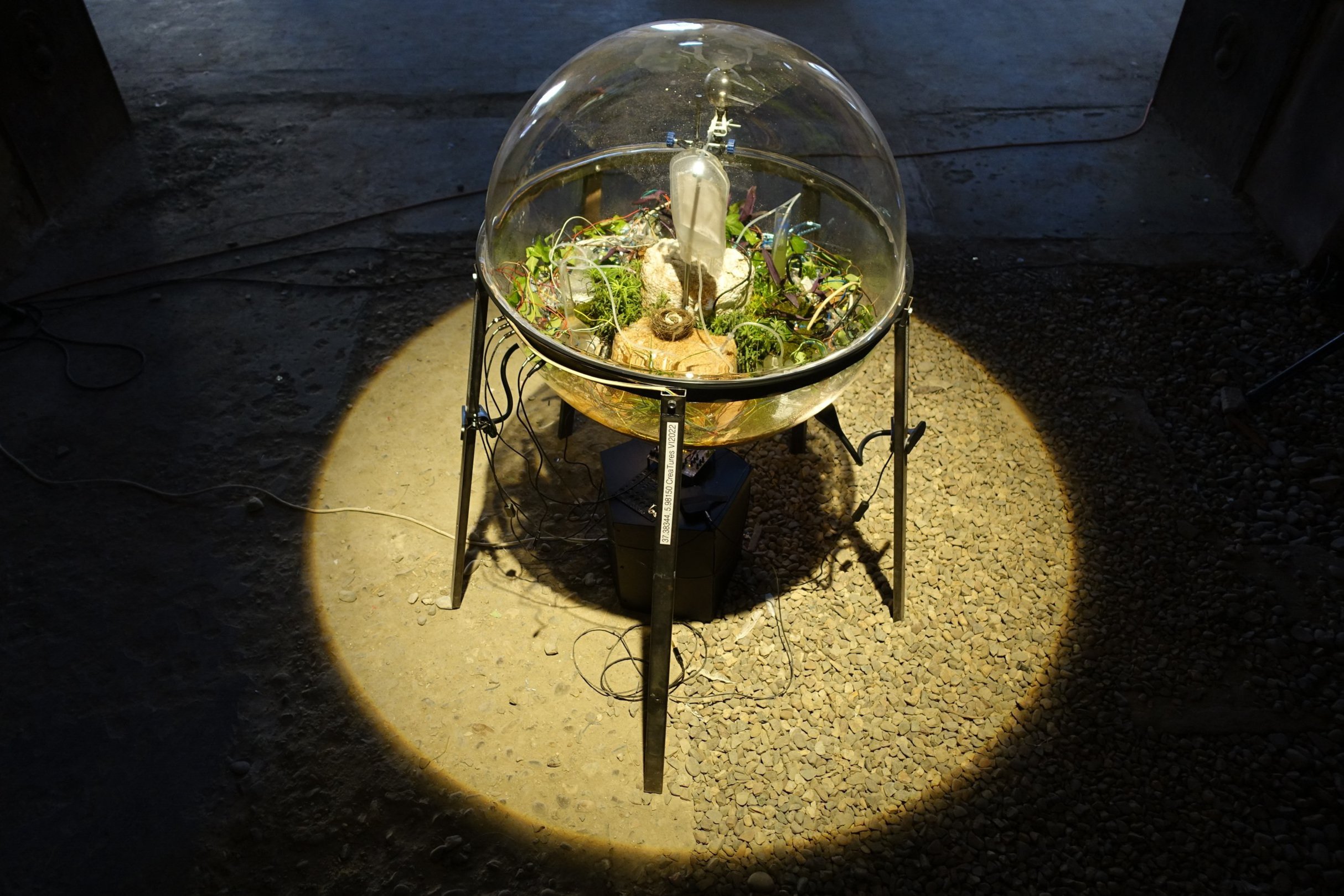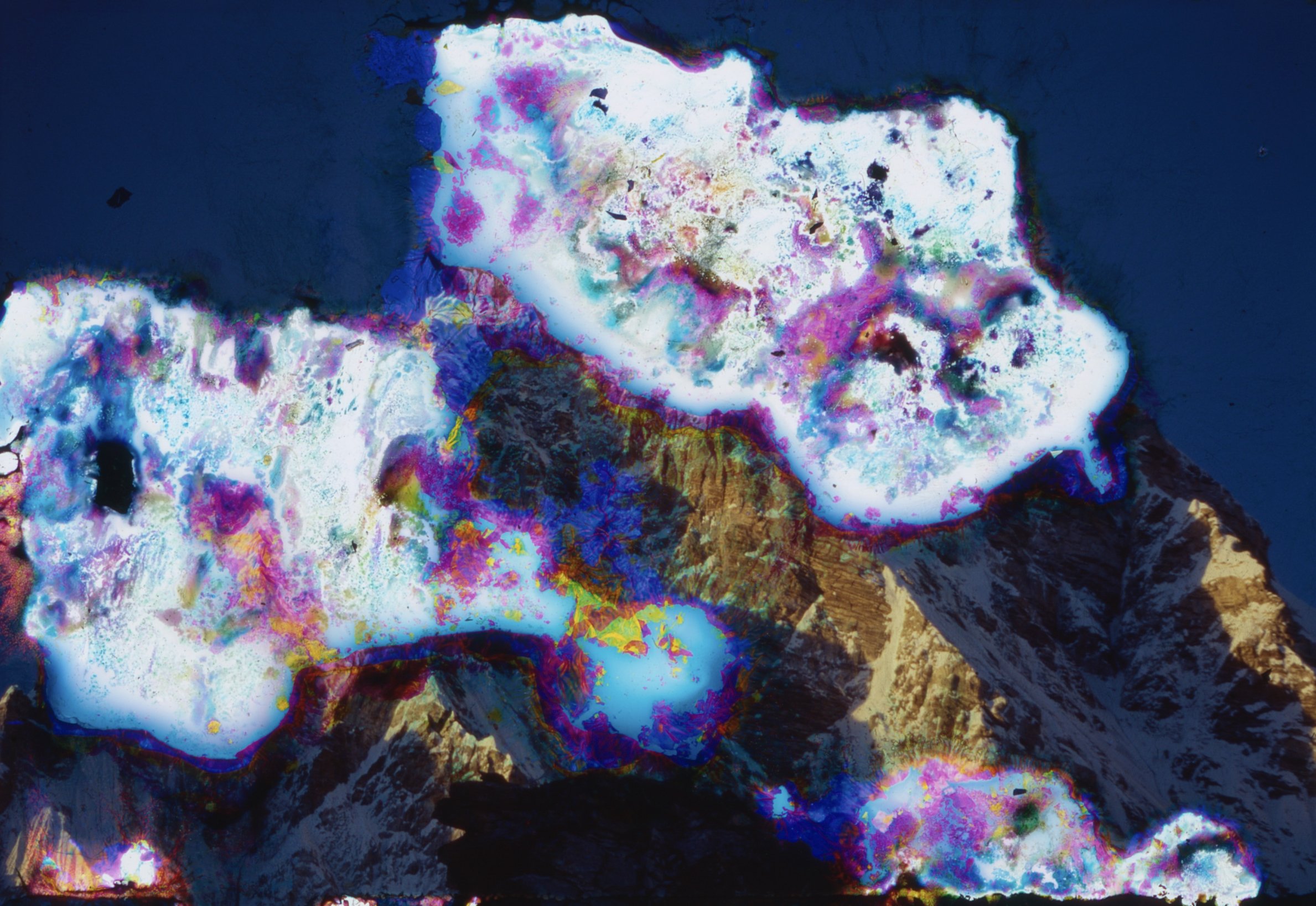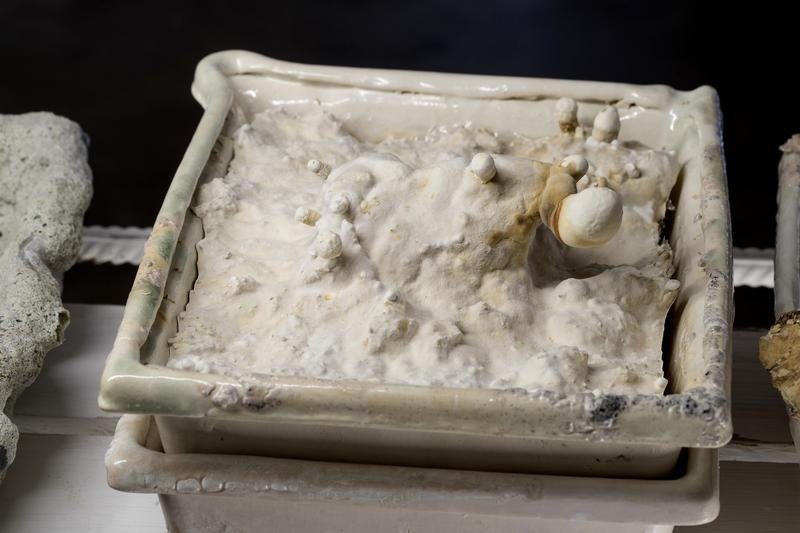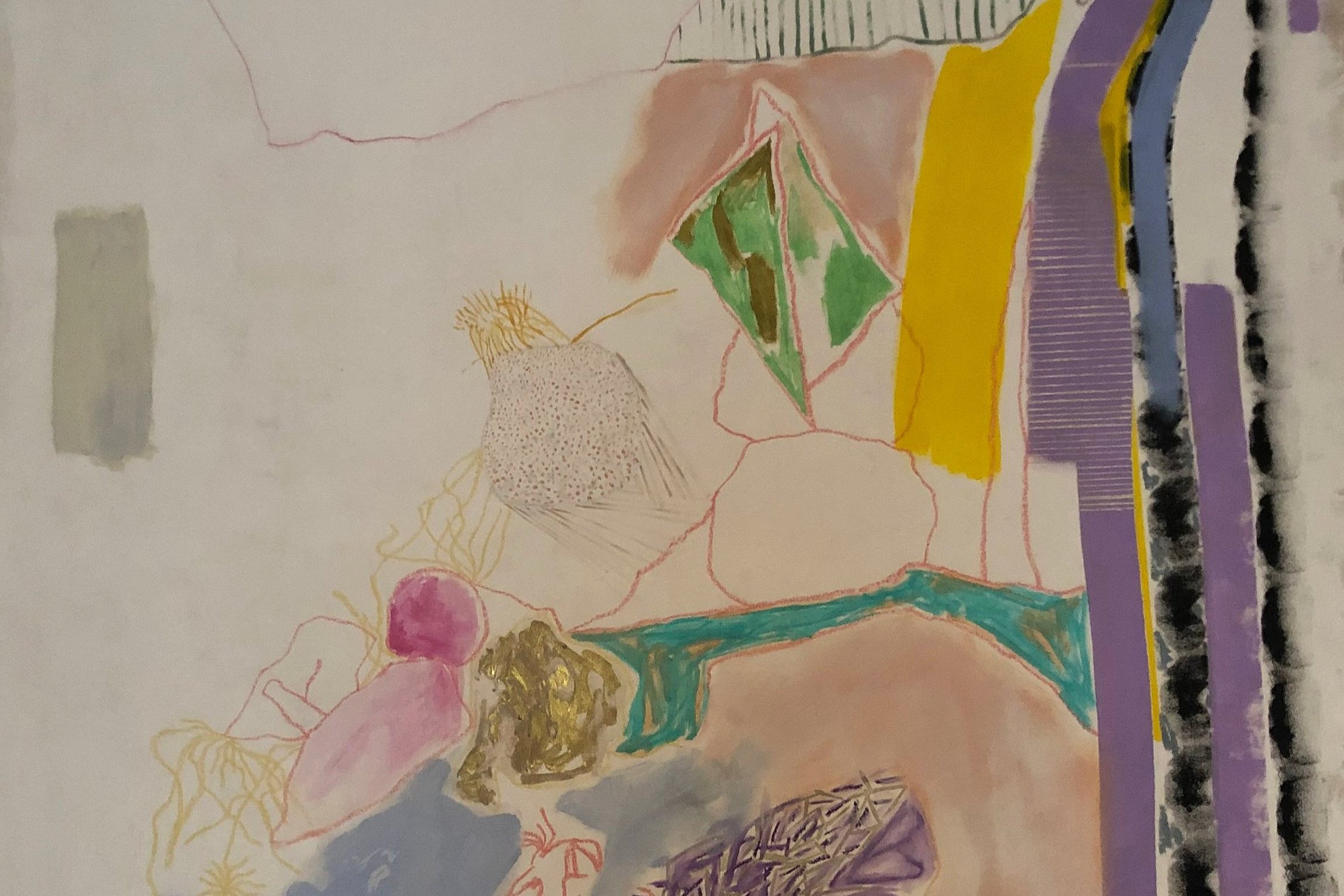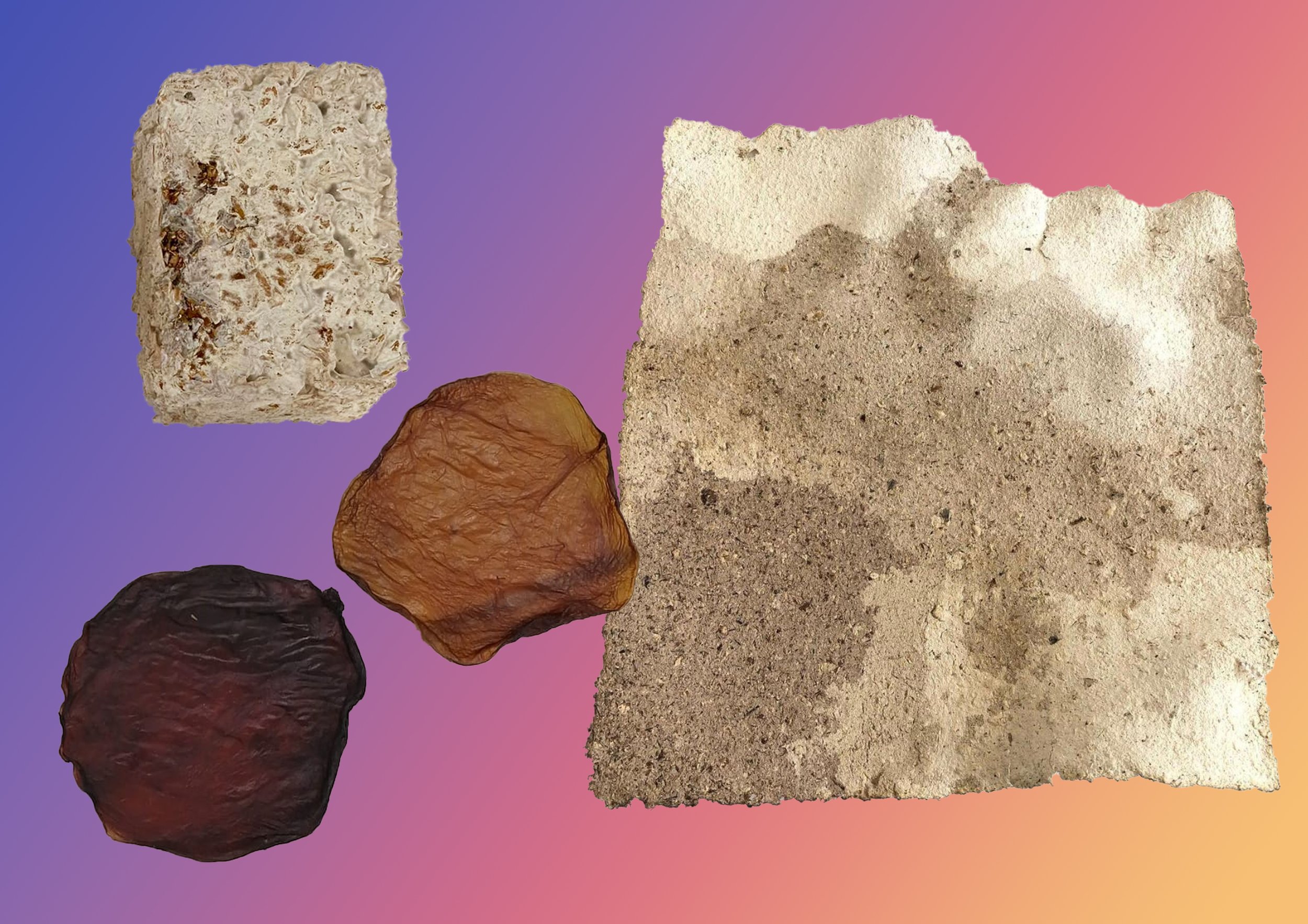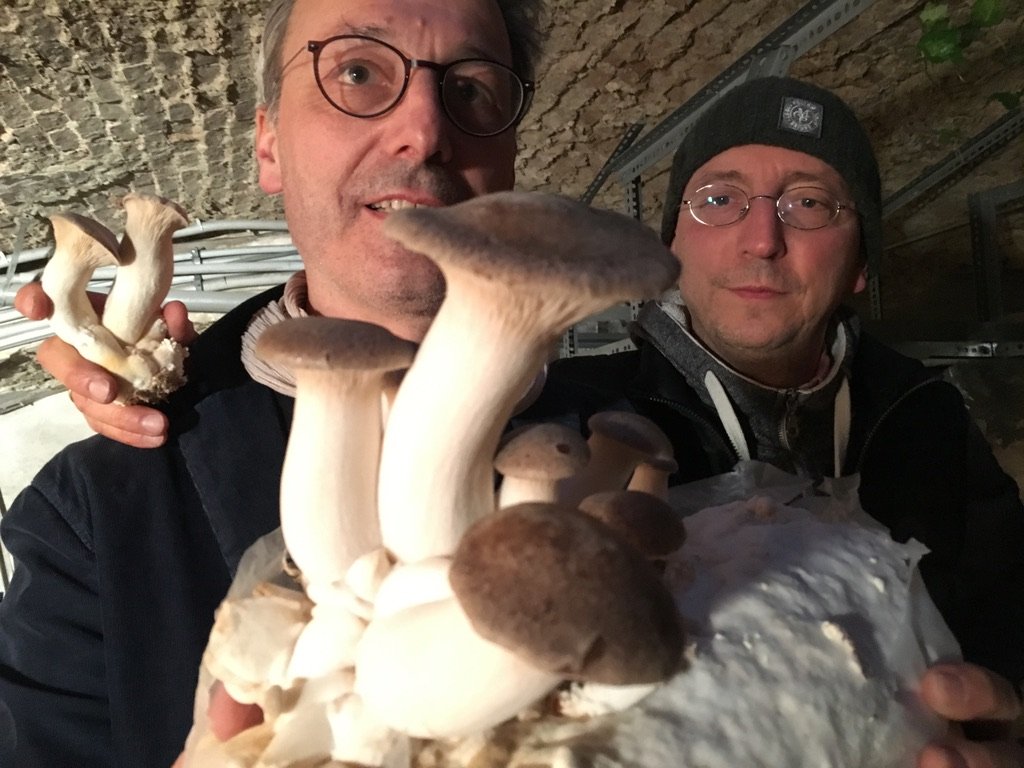Try, feel, fail. Learn. Think. Play. Observe
19–25/09/2023
Exhibition project in cooperation with the Vienna Fungi Festival
They are everywhere. They inhabit the innermost corners of our bodies and bathrooms, they infest skin and nails, roots and berries, bread and jam. They supply us with sustainable alternatives to animal leather, packaging materials, building bricks. They sweeten our lives with noble and yeast fungi, with blue and white mold cheese and baked goods, with beer and wine. They can heal and kill, inspire us with spiritual experiences or drive us mad. They are the basis of all plant life and provide their environment not only with vital raw materials, but also with the potentials of exchange and communication. They are the secret network that feeds the lungs of the planet. They support the nitrogen cycle of the oceans and survive even in outer space. They can turn ants into zombies or simulate the distribution of cosmic gas filaments. They are masters of experimentation and improvisation, exploration and modification. In the blink of an eye, they adapt to conditions that are ever-changing and impossible to predict.
With their widely ramified networks, their strategies of symbiosis and intertwining, and their vast variety of ephemeral manifestations, the fascinating world of fungi forms nothing less than a living counter-model to traditional concepts of art and science, challenging the rigid boundaries not only between disciplines, but also between theory and practice. Through their ability to regenerate ecological systems as well as outdated ideas of progress, fungi appear as highly effective agents introducing »different futures« by means of the unforeseen ways and means of a »multispecies assemblage« (Anna Tsing). In an entanglement of artistic and practical approaches, the exhibition makes fungi the starting point of a playful and open-ended exploration of relational, non-binary, and ahierarchical concepts of art and knowledge production, featuring an idea of togetherness, of sharing and caring.
With contributions by Paula Flores (MEX/AT), Taro Knopp (AT), Mouldelling Design aka Samire Gurgurovci (XK), Theresa Hajek (AT) and Salma Shaka (PS/UAE), Pilzbrüder aka Martin and Otto Kammerlander (AT), Jonas Studer (CH), Kristin Weissenberger (AT)
Curated by Mycelial Space / Sarah Kolb and Jutta Strohmaier within the Vienna Fungi Festival
Opening on Tuesday, September 19, 6 p.m. >> Image Gallery
Performance by Taro Knopp, delicacies from Pilzbrüder
Viktoria – Space for Artistic Research and Social Design, Viktoriagasse 5, 1150 Vienna
Until September 25, weekdays 10 am to 5 pm and by appointment
Contributors
Paula Flores, born and raised in the hectic border city of Tijuana, Mexico, lives and works in Vienna. She has a BA in Visual Art from the Universidad Autónoma de Baja California and a MA in Art & Science from the University of Applied Arts Vienna. In her artistic practice, she uses rocks, branches, plants, bacteria and fungi as storytellers of the history of the world and guides for interspecies relationships. She explores diverse understandings of who we are as humans out- and inside of what is considered the natural world by applying multispecies mediator roles and inverting them in as many ways possible – pushing herself to leave the concepts and comfort of what it is to be either human or nature.
Taro Knopp, born in 1980, is working, observing, researching, experimenting, playing [with] the fringes of science, art, politics, life, realities, … dealing with living organisms – especially fungi – as a medium of art = do it yourself with others, together. communicate. collaborate. entanglement shall be the destination. homeostasis under will. play, try, fail. learn. observe. feel. think. try, feel, fail. learn. think. play. he is also co-founder of messschiff eleonore, willy*fred house project, MyceliumNetworkSociety & part of STWST/linz. ml-iso|la|ti|o|nis|mus is one of several departments of his project myco-logick: a series of attempts of interaction with our fungal cohabitants, focusing on fungi as an omnipresent organism, communicating. mycelia as a tactical socio-political comparison, used to critically rethink the alternative models of economic production and co-existence.
Mouldelling Design is a cross-disciplinary research project by Samire Gurgurovci, Theresa Hajek and Salma Shaka. By exploring the various interconnections of fungi through mycelial production, the project aims to develop a framework for the cooperation of human and non-human life forms and to question the dual division of science through a queer, feminist and indigenous perspective. In 2021, a multimedia exhibition at the University of Applied Arts / Angewandte Vienna showcased mycelium-based products, including leather, bricks, and paintings by placing them in the context of the topics addressed. In this exhibition, Mouldelling Design delves into the themes of collective matter(ing) and expands its work to a larger landscape of sound, poem narration and a re-positioning of the mycelium-based products. >> Samire Gurgurovci is a Kosovo-raised multimedia artist and researcher based in Vienna. She has a BA in Cross-Disciplinary Strategies from the Angewandte Vienna and an MA in Human Rights from the Central European University. Her pursuits are dedicated to transcending disciplinary boundaries on pressing global and political issues. >> Theresa Hajek, born in Klagenfurt, is a Vienna-based multimedia artist. She has a BA in Cross-Disciplinary Strategies and currently studies Art & Science at the University of Applied Arts Vienna. Working at the intersection of art and science, she aims to provide insights into global political realities by creating spaces of sensible experiences based on combinations of tension and release. >> Salma Shaka is a multi-media artist and writer raised between Palestine and the UAE. She has a BA in Cross-Disciplinary Strategies from the Angewandte, with a guest semester at the Painting and Animation department. In an assemblage of different landscapes, Salma invites visitors to engage with themselves and the earth by provoking conversations on indigenous imaginations and land reclamation.
Pilzbrüder is a Viennese company that grows an assortment of organic mushrooms using the natural climate of a city-cellar in the heart of Vienna. Since 2018, its founders Martin and Otto Kammerlander have been making deliveries to restaurants, delis and organic delivery services and selling farm-to-table to private customers in the neighborhood. Mushrooms are being harvested in the moring and immediately delivered to the chefs in the restaurants, super fresh and healthy, by Pilzbrüder-own cargo bikes. All year round the Pilzbrüder team grows king oyster and shiitake mushrooms, sometimes also specialities like friseé and pompom mushrooms. In 2022 the Pilzbrüder grew and delivered approximately 7,5 tons of mushrooms. Visit the Pilzbrüder on Instagram or on their Website.
Jonas Studer is born in Muri and lives and works in Brugg and Wimmis, Switzerland. He studied Fine Arts at the Massey College for Creative Arts in Wellington, New Zealand, and has an MA in Art Education from the HGK Basel. Jonas’ work is informed by the Tout-Monde thought of Éduard Glissant, whose poetics of multiplicity stands for a human identity that is not defined by ethnic descent, but by the diversity of relationships. With his mycelographs, he explores interactions between nature and technology within an aesthetic research process – boundaries between human perception and the expression of a non-verbal organism are visually questioned. The getting-in-touch with the mycelium of the oyster mushroom (Pleurotus ostreatus) takes place through its interaction with light-sensitive film rolls and archival slide positives, as well as its ability to respond to chemical structures in its environment and produce enzymes to assimilate them as food.
Kristin Weissenberger, born in Voitsberg, Austria, is an artist, material researcher and lecturer living in Vienna. She studied at the University of Applied Arts Vienna and is a Senior Lecturer at the Academy of Fine Arts Vienna since 2021, where she also heads the studio for molding and casting techniques. In her artistic practice, Kristin uses different media and formats to research the relationship of human and non-human agency. In ongoing transdisciplinary investigations combining art, science, alchemy, craft and technology, she explores how we are in exchange within the spheres of matter and organisms that surround us, how this relationship shapes our understanding of a way of being in the world, and how we can develop new forms of encounter in the destroyed environment of the Anthropocene.
